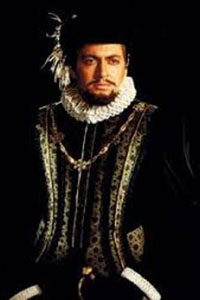The History of Francisco Araiza

Born: 4 October 1950
Mexican Tenor
The third of this trio of Spanish tenors, is Francisco Araiza, born on the 4th of October 1950, in Mexico City.
He expressed no interest in studying music, until his mid-teens. Although his father himself, was gifted with a beautiful tenor voice and he had taught him how to read music and play the piano at an early age and he took him to the Sunday matinees, at the Mexico City Opera, where he was chorus master.
These were the golden days when Distefano, Callas, and Del Monico were regular visitors and young Francisco, was duly impressed.
Nevertheless, when he joined the music class, it was to study the organ, his mandatory second preference, being the Cello class, which was full.
Reluctantly, after trying drums, flute, and violin, he had to settle for singing. Indeed, but for this chance requirement in the school curriculum, he might never have taken it up.
Finding a good teacher was a problem. But during a local concert, in which he sang Schumann’s Genoveva, he was heard by Irma Enriquez, a well-known teacher from the Conservatoire, who agreed to train him provided he enrolled at the Conservatoire, as a full-time voice student.
For the next six years 1968/1974, she worked on Araiza’s voice.
During this time, he made his debut in Mexico City, in a minor role in Beethoven’s, Fidelio.
Travelling to Europe, he won a major prize at the ARD competition in Munich and was taken up by the Carlo opera, which at that particular time, was planning a full Mozart cycle, stretching over several seasons.
His contract was for two years. But after his debut, in Cossi Fan Tutte, which had been very well received, the intendant walked into the dressing room, while Araiza was still in costume, tore up the existing contract and replaced it with a new one, for three years, at an extra 1000 marks per annum.
Un Aura Amorosa / C-Fan Tutte / 1978- Francisco Araiza
The three years in Karlsruhe were to be the founding stone of Araiza’s career.
He became a noted Mozartian, singing not only in Karlsruhe, but in Cologne in Don Giovanni.
Of all the Spanish tenors we have heard in our survey, none was noted as a Mozart singer. And Araiza was as surprised as anyone, at this turn of events. For he’d spent most of his time studying the Italian, vireo cos pinto repertoire.
However, Anton Dermotta and Richard Holm, two of the judges at the ARD German television competition, saw in him the potential for an ideal Mozartian.
And they should know. And it was, in fact, Richard Holm, who personally built and polished his Mozart style. So much so, that by the time he reached Covent Garden, the Times described him as the best Mozart singer in the world.
After a year at Zurich, he signed a permanent guest contract with Bavarian State Opera in Munich in 1978.
And as with many other singers in our survey, Araiza has used Munich as his home base, while pursuing an international career.
Here he is, in an extract taken from the 1983, Orphio recording, the one of Verdi’s rarities.
The early opera, Alzira.
Aria / Alzira / 1983 – Francisco Araiza
Aria / Alzira / 1983 – Francisco Araiza
With the signing of the three-year contract in Munich, in 1978, Araiza was now able to begin his international career. Which is now in full flight.
He has been heard at the Bayreuth and Salzburg and Eaon Provence festivals.
The Hamburg Opera. The Houston and San Francisco Opera. The Deutsch Opera, in Berlin. The Chicago Lyric Opera. The Royal Opera House, Covent Garden. La Scala, Milan. The Vienna State Opera and the Metropolitan Opera, New York.
He was at the Rome Opera, when I was there in 1986, in la Boheme. For by this time, he had expanded his repertoire, to take in the suitable Italian & French rolls.
He’s carefully grooming and preparing his voice for heavier parts. He will be 40 this coming October (1990). So, we have obviously a lot more to hear of him.
Meanwhile, to conclude, perhaps the shape of things to come. Richard Strauss, Rosenkavalier.
Italian Singes Song / Rosenkavalier – Francisco Araiza

The History as it was Recorded
Sydney Rhys Barker
